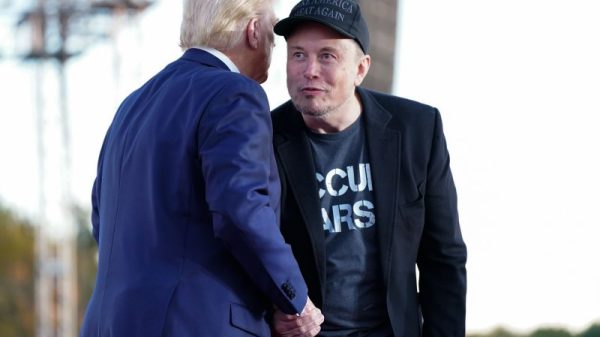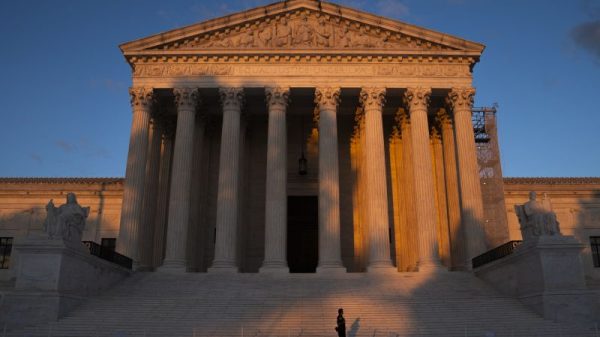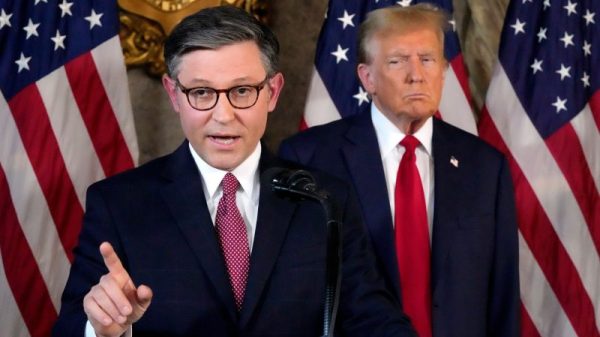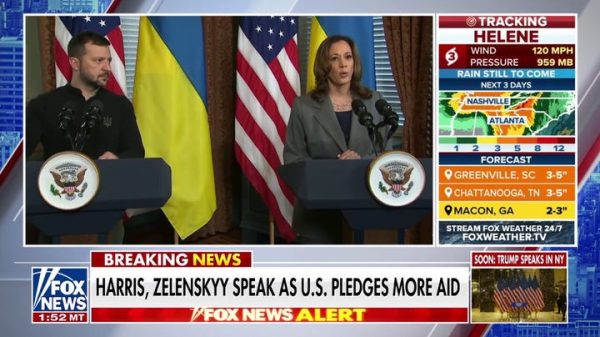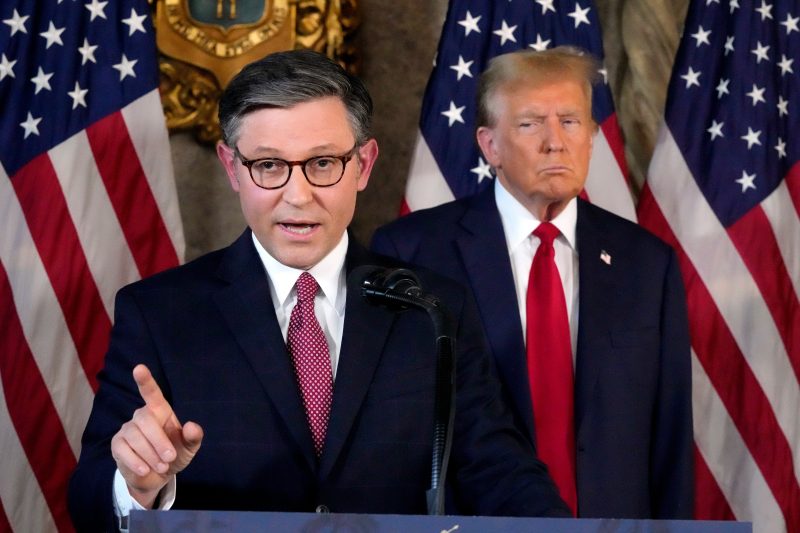House Speaker Mike Johnson (R-La.) is not interested in talking about the 2020 election.
“See, this is the game that is always played by mainstream media with leading Republicans. It’s a gotcha game,” Johnson said in response to a question on the subject from ABC News’s George Stephanopoulos on Sunday. “You want us to litigate things that happened four years ago, when we’re talking about the future. We’re not going to talk about what happened in 2020. We’re going to talk about 2024 and how we’re going to solve the problems for the American people.”
But what Stephanopoulos presented was very much a question about 2024.
What’s being “litigated” here, as you might have guessed, is not some intricate, disputed issue that arose four years ago. It is, instead, the most fundamental element of that presidential contest: who won. The voters and the votes and the states say that Joe Biden won. But former president Donald Trump says that he himself did, or at least that Biden didn’t — and that attitude trickles down through his party.
Stephanopoulos, interviewing Johnson on “This Week,” had several reasons for asking Johnson whether he would acknowledge that Biden won four years ago, which Johnson didn’t. One is that Trump’s running mate, Sen. JD Vance (R-Ohio), refused to say that Biden won in 2020 when asked during last week’s vice-presidential debate. Another is that Johnson, as the leader of the House of Representatives, has a role in ensuring that the 2024 presidential results are finalized next year.
Johnson insisted that he would carry out that role, saying that “Congress has a very specific role and we must fulfill it.” But that came shortly after his telling Stephanopoulos that he was “hopeful that we have a free and fair election” — qualifiers that, last month, he applied to his insistence that he would fulfill that congressional role.
“If we have a free, fair and safe election,” he said then, “we’re going to follow the Constitution.”
Speaking to Stephanopoulos, Johnson also articulated why the election might not be free and fair, at least in his view.
Americans, he said, are “worried about election interference by foreign nationals like Iran who’s trying to meddle in our elections. They’re worried about, of course, illegals voting, noncitizens voting. That is against federal law.”
They are “worried about this” primarily if they are Republicans and primarily because people like Johnson and Trump have elevated the idea that this occurs to a significant extent, which it doesn’t. But you can see the appeal to Trump in such claims, melding two of his favorite issues: “election security” and immigration. So, as he did in the weeks after the 2020 election, Johnson goes along.
This, fundamentally, is why “was the 2020 election legitimate?” is a fair question for Republican elected officials. It’s certainly useful in the abstract to document which elected officials are willing to deny obvious reality. But it’s also a measure of the extent to which Republicans are going to be willing to stand up to Trump’s efforts to subvert the 2024 results should he once again fail to win more votes.
This isn’t only about the “very specific role” assigned to the House of Representatives, the counting of electoral votes that, as it did in 2021, will unfold on Jan. 6. It’s about everything that led up to Jan. 6 last time around: the denial, the scrambling, the pressure campaigns, the lies. It’s about the extent to which people lower on the pro-Trump ladder are going to be willing to try to make him the winner anyway.
It’s about how fervently the scores of Republicans in Congress will attempt to derail the electoral-vote count. It’s about how many state and elections officials will slow-walk certification of results or actively attempt to undermine confidence in the submitted votes. It’s about how many grassroots Trump supporters will feel as though it’s acceptable to interfere with vote-counting or vote-casting in light of the nonexistent threats to our elections that people like Johnson have been elevating.
There are scores of Trump supporters sentenced to or in prison for criminal acts related to the former president’s insistence that he didn’t lose in 2020. They had been convinced that their actions were offered in response to the lack of a “free and fair election.” Trump and his allies did everything in their power to stoke that conviction.
The “was 2020 a legitimate election” question is a proxy for evaluating whether Republicans will allow Trump to do that again. If you ask them whether they would prevent Trump from elevating false claims about this year’s election, you would get responses that centered on a hypothetical. When you instead ask them whether they are willing to acknowledge obvious reality — or if, instead, they believe that doing so is an unacceptable sign of disloyalty to Trump — you get a better answer to that question anyway.
Asking the person who is second in line to the presidency whether he accepts a basic element of reality can never be a “gotcha” question — unless that person refuses to acknowledge that reality. That Johnson does so in this case tells us not just what he thinks of 2020, but also what he thinks of 2024.

















